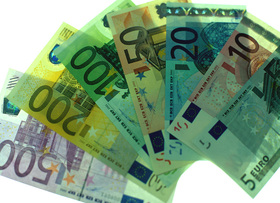

Economic and Monetary Union, EMU
An economic and monetary union is a close cooperation among countries in the government of their economies including a single currency and different kind of economic policy instruments for a joint level of decision-making.
The EU established the Economic and Monetary Union by the Treaty of Maastricht in 1993 as a political compromise between France and Germany. France wanted an economic government to rule the Euro. Germany did not. The result was a monetary Union with rather weak instruments of economic governance.
The EMU was then heavily threatened during the financial crisis from 2008 onward and was reformed with stronger common instruments and Treaty changes. More proposals for change are being discussed, including possible common euro bonds and the establishment of a common finance minister controlled by a special parliament for the Eurozone.
The original EMU had three stages of preparation, the third and final stage having begun on January 1st 1999 with the legal introduction of the Euro as a single currency.
The EMU provides a common central bank for the countries which use the Euro (the Eurozone countries), the European Central Bank (ECB) and the European System of Central Banks. The ECB issues the currency for the Eurozone countries and thereby controls the issue of credit and the money supply for the entire zone.
The Treaties require low inflation. The ECB has decided to keep inflation in the Eurozone between 0 and 2%. The ECB is not politically controlled and is forbidden by the Treaty from taking instructions from any government or any EU institution.
The Treaty requires member governments to manage their economies so that they are consistent with the ECB’s monetary policy.
In order to join the EMU countries’ economies have to meet four “convergence“ criteria. After joining countries must agree to keep their spending below a certain level governed by the Stability and Growth Pact.
Under the Pact governments that run excessive budget deficits and spend more than their income, and do not attempt to solve this problem, may be fined. These fines may be proposed by the Commission and must be agreed then by the Council. No such fine have been imposed to date.
In 2003 both Germany and France broke the rule stating that governments cannot run a yearly deficit of more than 3% of the Gross National Product (GNP). They were not fined. Other countries then widely broke the government budget deficit criteria.
Following the 2008 financial crisis most member states found themselves in breach of the ceilings for public spending and were open to being threatened with fines.
In 2011, a special Euro Pact was agreed to coordinate economic policies, wages, pensions and social benefits. A new lower ceiling was established for public spending. This lays down that national budgets must be balanced so that the so-called “structural deficit” in national budgets will not be more than 0.5% of GNP.
The commitment to balanced budgets and a maximum deficit of 0.5% at national state level was embodied in the Treaty on Stability, Coordination and Governance in the Economic and Monetary Union, known popularly as the Stability Pact or Stability Treaty. This was ratified in 2012 by all the EU member states except the UK and the Czech Republic.
Links
See also Economic coordination, Euro Pact and Optimum currency area
http://www.ecb.int/ecb/history/emu/html/index.en.html